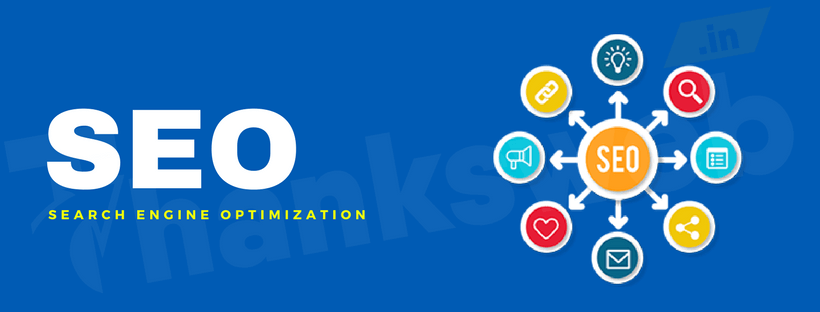Great websites gets more profitable business.
The Leader in Website Design
Stand out online with a professional website, online store, or portfolio. With Squarespace, you can turn any idea into a reality.As we are website developer with over 1.5 years of expertise in developing creative, conversion focused websites, we are well-poised to help your business make a mark online.
Why RB Tech Services for developing your website?
✔ We are among the most experienced web developer from India
✔ All our website UI works are handled by our senior team. We won't leave your web design at the hands of a trainee.
✔ We have separate teams for content development, design, coding, testing and online marketing.
✔ Our experience ranges from building corporate websites to cutting-edge portals and ecommerce websites.
✔ We never use a pre-designed template for your website.
✔ All design layouts are developed from ground up, meeting the exacting standards you demand.
✔ Our exceptional skills in search engine optimization ensures that your website ranks well on search engines.
Advantages Of Website Design at RB Tech Services
✔ Branding and strategic thinking
✔ Mobile Responsive Design
✔ Creative web designing
✔ Coding and Technology
✔ Marketing your website
✔ Website maintenance
Read more
Interested To Get Our
Website Development Service
Let's RB Tech Services is also top website design company in Ahmednagar and is one of
the best ecommerce website development companies in Ahmednagar.
Our Domain Expertise
Websites
- Website For CA or CA Firm
- Website For Doctors
- Website For Dentists
- Website For Photographer
- Website For Artist
- Website For Fashion
- Website For Business or Organization
- Website For Training Institute
- Website For Clinics & Hospitals
- Website For Interior Decorators
- Website For Any Company
- Website For Digital Marketing
- Website For Engineering College
- Website For Primary School
- Website For Manufacturing Company
- Website For Engineering Company
- Website For Food Production Company
- Website For A Food Logistics Company
- Website For NGO
- Website For Hotel
- Website For Software Company
- Website For Startup Company
- Website For Event
- Website For Hospital
- Website For Restaurant
- Website For Gym
- Website For Lawyers
- Website For School & College
- Event Website
- Personal Blogs
- Company Blogs
- Corporate Company Website
- Matrimony Website
- Personal Websites
- Product Showcase Website
- FMCG Product Manufacture Website
Ecommerce Websites
- B2C Ecommerce Website
- B2B Ecommerce Website
- Online Marketplaces
- Ecommerce Website For Book Publishers
- Ecommerce Website For Selling Books Online
- Ecommerce Website For Selling Mithai Online
- Ecommerce Website For Selling Apparels Online
- Ecommerce Website For Selling T Shirts Online
- Ecommerce Website For Boutique
- Ecommerce Website For Store
- Ecommerce Website For Cloth Store
- Ecommerce Website For Selling Laptops Online
- Ecommerce Website For Selling Mobiles Online
- Ecommerce Website For Selling Electronics Online
- Ecommerce Website For Selling Jewellery Online
- Ecommerce Website For Selling Beauty Products Online
- Ecommerce Website For Selling Cosmetics Online
- Ecommerce Website For Online Food Delivery
- Ecommerce Website For Selling Furniture Online
- Ecommerce Website For Selling Shoes Online
- Ecommerce Website For Selling Wine Online
- Ecommerce Website For Selling Shoes Online
- Ecommerce Website For Selling Perfumes Online
- Ecommerce Website For Selling Flesh Online
- Ecommerce Website For Selling Baby Products Online
- Ecommerce Website For Selling bags Online
- Ecommerce Website For Selling Fashion Accessories Online
- Ecommerce Website For Selling Home Accessories Online
- Multivendor Website
- Online Tiles Selling Website
- Multivendor Website For Electronics Accessories
- Multivendor Website For Book Selling
- Multivendor Website For Vegitables Selling
- Online Food Delivery Website & Ecommerce Website
- Multivendor Website For Selling T Shirts Online
- Single Vendor Website For Selling Mobiles Online
Our Domain Expertise
- Website For CA or CA Firm
- Website For Doctors
- Website For Dentists
- Website For Photographer
- Website For Artist
- Website For Fashion
- Website For Business or Organization
- Website For Training Institute
- Website For Clinics & Hospitals
- Website For Interior Decorators
- Website For Any Company
- Website For Digital Marketing
- Website For Engineering College
- Website For Primary School
- Website For Manufacturing Company
- Website For Engineering Company
- Website For Food Production Company
- Website For A Food Logistics Company
- Website For NGO
- Website For Hotel
- Website For Software Company
- Website For Startup Company
- Website For Event
- Website For Hospital
- Website For Restaurant
- Website For Gym
- Website For Lawyers
- Website For School & College
- Event Website
- Personal Blogs
- Company Blogs
- Corporate Company Website
- Matrimony Website
- Personal Websites
- Product Showcase Website
- FMCG Product Manufacture Website
- B2C Ecommerce Website
- B2B Ecommerce Website
- Online Marketplaces
- Ecommerce Website For Book Publishers
- Ecommerce Website For Selling Books Online
- Ecommerce Website For Selling Mithai Online
- Ecommerce Website For Selling Apparels Online
- Ecommerce Website For Selling T Shirts Online
- Ecommerce Website For Boutique
- Ecommerce Website For Store
- Ecommerce Website For Cloth Store
- Ecommerce Website For Selling Laptops Online
- Ecommerce Website For Selling Mobiles Online
- Ecommerce Website For Selling Electronics Online
- Ecommerce Website For Selling Jewellery Online
- Ecommerce Website For Selling Beauty Products Online
- Ecommerce Website For Selling Cosmetics Online
- Ecommerce Website For Online Food Delivery
- Ecommerce Website For Selling Furniture Online
- Ecommerce Website For Selling Shoes Online
- Ecommerce Website For Selling Wine Online
- Ecommerce Website For Selling Shoes Online
- Ecommerce Website For Selling Perfumes Online
- Ecommerce Website For Selling Flesh Online
- Ecommerce Website For Selling Baby Products Online
- Ecommerce Website For Selling bags Online
- Ecommerce Website For Selling Fashion Accessories Online
- Ecommerce Website For Selling Home Accessories Online
- Multivendor Website
- Online Tiles Selling Website
- Multivendor Website For Electronics Accessories
- Multivendor Website For Book Selling
- Multivendor Website For Vegitables Selling
- Online Food Delivery Website & Ecommerce Website
- Multivendor Website For Selling T Shirts Online
- Single Vendor Website For Selling Mobiles Online
Benifits of Responsive Web Design
There are many responsive web design benefits. It can positively impact your SEO, conversion rates, user experience, and many other aspects of your business that contribute to your growth. Here are the 12 most important responsive web design features and benefits.
1. Improved User Experience
A responsive website leads to a better user experience. A major factor indicating the quality of user experience is the time they spend on your site. If they find it hard to navigate or use because they're forced to constantly pinch and zoom, they won't stay on your website.
But if your website scales and responds to the change in screen size, then visitors won't have problems accessing menus, links, buttons or filling out forms. As a result, their user experience will be better and they'll spend more time on your site.
Improved user experience and site usability can then lead to more word of mouth referrals and new customers for your business.
2. An Increase in Mobile Traffic
Statistics show that in the last quarter of 2017, nearly 52% of all global web traffic originated from mobile devices. That accounts for more than half of all Internet traffic and goes to show that you cannot afford to forego responsive web design. Start by investigating how many of your visitors come from mobile devices and the time they spend on your site. Then, implement responsive design and compare the two numbers. Once your website adapts to the viewport width, you'll notice an increase in mobile visits and longer time on site by those same visitors.
3. Faster Website Development
Not so long ago, a common practice involved making a separate mobile version of your site that was served when a smaller screen size was detected. However, developing a mobile version of your site takes up more time than developing a responsive website that looks great and works as intended no matter which device your visitors are using. Another downside of a mobile website version is the fact that they cost more because your developer has to create two websites instead of one.
4. Easier Maintenance
Directly tied to the point above is easier website maintenance. With two versions of your website, your staff or your development team has to divide time and resources on managing two websites. With a responsive website, your staff can spend less time on maintenance tasks and focus on more important tasks such as marketing, A/B testing, customer service, product or content development, and more.
5. No Duplicate Content Penalty
Another point to keep in mind with two versions of your website is the fact that you're essentially creating duplicate content. While search engines are getting smarter by the day, they still need to understand which website version is more important. If you're using a mobile version of your site, your content remains the same even if the URL is different.
This can cause both versions of your website to have lower search engine rank because search engines won't know which content is relevant. If you want both versions of your site to rank well, you would need to create two separate SEO strategies and campaigns and invest significantly more money in producing original and unique content for both desktop and mobile version of your site.
Since having two separate SEO strategies requires too much time and money, most website owners resort to using a canonical tag on their mobile website that points to the desktop version. As a result, most separate mobile websites aren't ranked in search engines at all.
With a responsive website, all of the headaches above can be successfully avoided. If you had any doubts about responsive web design importance, this should help alleviate them.
6. Simpler Website Analytics
When you've got two distinct versions of your website, you need to keep track of two set of website analytics so you know where your visitors are coming from and how they interact with your content. This means you need to keep track of multiple signup and thank you pages, conversion points, funnels, and more.
With a responsive site, on the other hand, your website stats are greatly simplified as you're staying on top of a single set of data. You can still get insight into which devices and browsers your visitors are using, where they drop off, and how long they spend on your site, but you won't need to read data from multiple reports to get an accurate picture.
7. Better Website Loading Times
Websites that are responsive tend to load faster on all devices, but especially on smartphones and tablets. Thanks to responsive images and fluid grids, it takes significantly less time for a page to load, which has a direct impact on the duration of your user's visit. According to research, 53% of mobile visitors will abandon a site if pages take longer than three seconds to load. The same research shows that websites that load fast benefit from more time spent on site as well as improved conversion rates. This speaks volumes about responsive web design importance.
8. Lower Bounce Rates
Bounce rate signifies the percentage of visitors to a particular website who navigate away from the site after seeing a single page only. As we've mentioned above, a responsive website means visitors will stay on your site longer which reduces your bounce rate. Visitors will be more inclined to click through and read other pages on your site and explore everything you've got to offer.
9. Higher Conversion Rates
More time on your site and lower bounce rate are good first steps to improving your visitor's user experience and building trust. That improved user experience and trust lead to better conversion rates, whether conversion means signing up for your newsletter, making a purchase or booking a call. Consider for a moment that average smartphone conversion rates are up by 64% compared to desktop and it's easy to see why a responsive website is a must.
10. Better SEO
Another one of the advantages of responsive web design is improved search engine rank. As of April 2015, Google takes into consideration the responsiveness of your website as one of the signals that determine the rank of your website in the search engine results page. If your website isn't responsive, the search engine giant will place it lower on the results page whereas it will show up higher if it passes the mobile-friendly test.
SEO improves
Another of the advantages of responsive web design is improved search engine rank. (Source: Envato Elements)
11. More Social Sharing
When done correctly, responsive web design can lead to an increase in social shares for your content. This is another one of the responsive web design benefits. Responsive content paired with responsive social media buttons make it easy to share links to your site's pages even on smaller screens. This can help increase your credibility and expose you to a new audience, which then leads to more traffic and more conversions. At the same time, social signals can also impact your search engine rank indirectly because search engines will notice the increased engagement and search demand.
12. Better Backlinks
Finally, it's worth mentioning that a responsive website can help you when it comes to building backlinks. Backlinks play an important role in any SEO strategy because they show search engines that other websites consider your site a reputable source of information. If your site isn't responsive, other websites will be less inclined to link to you. After all, linking to a website that doesn't provide good user experience makes them look bad as well.









